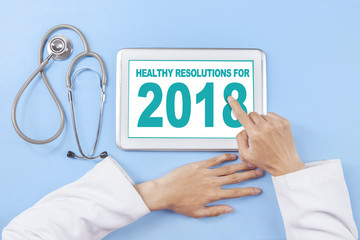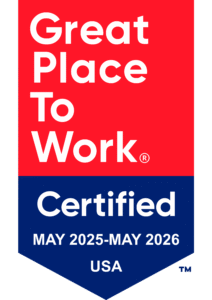FEB 2018: Heart Disease; A Different Picture in Women?
 Did you know that heart disease remains the number 1 killer of women in the U.S.? Responding to its signs and symptoms can help save your life. But first it helps to know that women may experience these signs and symptoms a little differently than men.
Did you know that heart disease remains the number 1 killer of women in the U.S.? Responding to its signs and symptoms can help save your life. But first it helps to know that women may experience these signs and symptoms a little differently than men.
Signs and symptoms in women. Heart disease often develops when fatty substances called plaque build up in large vessels of the heart (coronary arteries). Narrowed arteries may slow blood flow, which may temporarily cut off oxygen to the heart muscle. This may produce certain signs and symptoms of angina, such as chest tightness, pressure, or discomfort. Angina usually happens when you’re active or stressed—and goes away soon after you stop exercising or feeling stressed.
In women, however, symptoms may occur during normal daily activities or times of stress and may include:
• Sharp, severe chest pain
• Chest pain that lasts longer than 10 minutes
• Shortness of breath
• Sleep problems, fatigue, and lack of energy
• Nausea
• Abdominal pain
If you have symptoms like these, call your doctor right away.
In women, symptoms of heart attack (heart damage) may be more subtle than they are in men. They may include:
• Chest pressure, squeezing, or pain that lasts for a few minutes or comes and goes
• Pain in your jaw, arm, neck, stomach, or back
• Shortness of breath—this may happen without any chest discomfort
• Sweating, nausea, dizziness or light-headedness
If you have symptoms of heart attack, call 911 right away. Do not drive yourself to the hospital. Even if you’re in doubt, get checked. Better safe than sorry? Well, that gets to the heart of the matter, doesn’t it?
Why symptoms may be different in women. Researchers can’t completely explain these differences. However, in men, heart disease usually occurs from blockages in coronary arteries. In women, heart disease or damage may develop in the tiny arteries that branch out from the coronary arteries. Angina symptoms may be due to spasms within these small blood vessels. Called microvascular disease (MVD), this may occur more often in younger women.
Broken heart syndrome is another heart condition that mainly affects women. Doctors don’t understand it well. With this syndrome, extreme emotional stress can cause severe heart muscle failure. Although the symptoms of this syndrome are similar to those of a heart attack, most people recover quickly and fully.
Diagnosis. Your doctor may diagnose heart disease based on a combination of your medical history, physical exam, and test results. However, standard tests such as cardiac catheterization often won’t spot MVD or broken heart syndrome. That’s because they are designed to assess blockages in the heart’s larger vessels. Researchers are still looking for the best ways to diagnose heart disease in women.
Reducing your risks. Even with these unanswered questions, you can still do something right now to reduce your risk of heart disease. For example, do you need to stop smoking, drop some pounds, or increase your activity level? Do you have high blood pressure or cholesterol? Talk with your doctor or me about ways to reduce these risks. If you need any high blood pressure or cholesterol medications, let’s work together to make sure you reap the most benefits with the fewest side effects.
JAN 2018: Are These 4 New Year’s Resolutions On Your List?
 Do you make New Year’s resolutions? If so, what’s at the top of your list—losing weight, quitting smoking, exercising more? If you’re making resolutions like these, we certainly hope you’re successful. Here are a few other resolutions you might not have considered.
Do you make New Year’s resolutions? If so, what’s at the top of your list—losing weight, quitting smoking, exercising more? If you’re making resolutions like these, we certainly hope you’re successful. Here are a few other resolutions you might not have considered.
1. See your doctor. Many people—especially men—put doctors’ visits on the back burner. Men make 130 million fewer visits than women to the doctor each year. Whether you’re a man or a woman, it’s important to see your doctor at least once a year.
During your annual visit, you’ll have your blood pressure checked, follow up on any tests or vaccines you need, and discuss ways to stay healthier. Try scheduling your annual physical during the month of your birthday. This makes it easier to remember, and it can be your annual birthday gift to yourself.
Of course, if something comes up in between annual visits, don’t ignore it. Sprained wrist? Changing mole? Blood in your stool? Deep sadness lasting more than a couple of weeks? Don’t wait…. See your doctor.
2. Review your medications. While we’re on the topic of medical visits, why not resolve to come my way during the next month or two? We can review your list of medications, discuss any side effects you may be having, and come up with a game plan—along with your doctor—to improve how you’re feeling. I can also make suggestions for how to store medications and the safest ways to dispose of any expired medications you have on hand.
3. Eat mindfully. You’ve no doubt received lots of advice on what to eat. What about how to eat? Eating mindfully means you pay attention to your food while you eat it. You might be surprised what a difference this makes. Truly savoring your food may help you be more emotionally satisfied by it. You may also be able to “hear” your body’s cues, likes the ones telling you what your body is craving or when it’s time to stop eating.
Want to know more about how to do this?
• First of all, slow down. Really smell, taste, and chew your food before swallowing it.
• Don’t try to do anything else while eating, such as reading the newspaper or checking your email.
• Use smaller plates to help with portion control.
• Keep serving bowls a step or two away so you have to think twice before going back for seconds.
• To help you slow down, put your fork or spoon down in between bites.
4. Reconnect with nature, others—and yourself. These days, many people are constantly wired. Give it a break, and try this resolution. Free yourself one day a week from all electronics: television, smartphone, computer, and tablet. Use this time to go for a walk in the park, play some music, read a novel, try a new recipe, or reconnect with a neighbor. Many people find that taking a break from electronics helps ease their anxiety and stress. What a great way to ring in the new year—more relaxed and present for yourself and those around you!
Nothing herein constitutes medical advice, diagnosis or treatment, or is a substitute for professional advice. You should always seek the advice of your physician or other medical professional if you have questions or concerns about a medical condition.
- « Previous Page
- 1
- …
- 52
- 53
- 54
- 55
- 56
- …
- 62
- Next Page »
